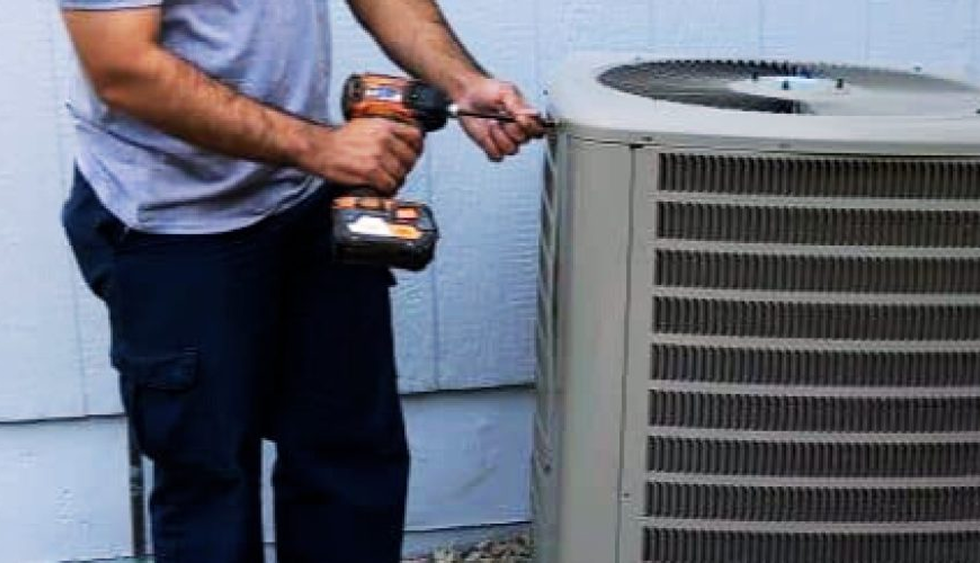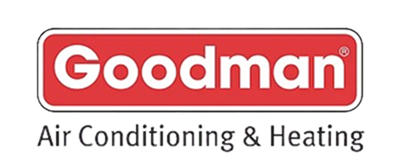
Air conditioner replacement is a critical aspect of maintaining optimal comfort and energy efficiency in homes, particularly for residents of Kansas City, where the climate can be especially demanding. As seasons change, the need for a reliable cooling system becomes evident. An efficient air conditioning unit not only ensures comfort during the sweltering summer months but also plays a significant role in energy conservation, reducing utility bills over time.
Homeowners in Kansas City should be aware of several signs that indicate it may be time for an air conditioner replacement. A significant decrease in cooling efficiency, unusual noises emanating from the unit, persistent humidity indoors, and an increase in energy bills are all red flags. If your air conditioner requires frequent repairs or is over 10-15 years old, it is wise to consider upgrading. Modern models are engineered to be much more efficient than older units, incorporating advanced technology that optimizes energy use and enhances comfort levels.
Upgrading to a newer model also comes with a variety of benefits. Most modern air conditioning systems utilize environmentally friendly refrigerants and comply with current energy standards, leading to a smaller carbon footprint. Additionally, innovative features such as programmable thermostats and smart home integration offer increased control over energy consumption. This can lead not only to increased comfort but also to significant long-term savings on energy costs. Investing in a new air conditioner is, therefore, not merely about immediate comfort; it is a strategic decision that contributes to energy efficiency and environmental sustainability.
Understanding HVAC Systems: Basics and Importance
HVAC, which stands for Heating, Ventilation, and Air Conditioning, represents a crucial technology in modern homes, particularly for residents in climates such as that found in Kansas City. The primary goal of an HVAC system is to provide comfort by regulating the indoor temperature and air quality. This regulation is achieved through a combination of various components that work seamlessly together to create a cozy living environment.
The core components of an HVAC system include the heating system (which can be a furnace, boiler, or heat pump), the ventilation system (comprising ductwork and fans), and the air conditioning unit. Heating components typically operate during colder months to elevate indoor temperatures, while the air conditioning unit functions to cool the air during warmer months, ensuring that a balanced indoor climate is maintained year-round.
Ventilation plays a critical role in this system, as it is responsible for ensuring the circulation of fresh air while removing stale air. This component is vital not only for temperature regulation but also for maintaining indoor air quality, which can significantly impact health and overall comfort. Adequate air exchange helps eliminate pollutants, allergens, and moisture that can lead to mold growth and other issues.
For Kansas City residents, having a well-functioning HVAC system is imperative. The city’s variable weather patterns necessitate reliable heating and cooling options to ensure year-round comfort. Poorly maintained systems can lead to inadequate temperature control and increased energy costs. Thus, understanding the importance and functionality of HVAC systems helps homeowners make informed decisions regarding maintenance, repairs, or replacements, ensuring optimal performance and longevity of these essential systems.
Choosing the Right Air Conditioner for Your Home
Selecting the appropriate air conditioner for your home is a critical decision that affects comfort and energy efficiency. One of the foremost considerations should be the size of your home. The cooling capacity of an air conditioner is typically measured in British Thermal Units (BTUs). A unit that is too small may struggle to cool your space, while one that is overly large will cycle on and off frequently, leading to higher energy costs and potential wear and tear. To determine the required BTUs, consider the square footage of your home, the number of windows, and the level of insulation.
Efficiency ratings, particularly the Seasonal Energy Efficiency Ratio (SEER), are another essential factor. SEER ratings provide insight into the energy efficiency of an air conditioning system, with higher ratings indicating greater efficiency. For Kansas City residents, it is advisable to consider units with a SEER rating of at least 14, as these will not only save on energy bills but also reduce environmental impact.
When comparing different types of air conditioning units available in Kansas City, it is important to consider centralized systems, ductless mini-splits, and window units. Centralized systems are ideal for larger homes and offer consistent cooling throughout the house. Conversely, ductless mini-splits are versatile options for homes without existing ductwork and provide zoned cooling. For smaller spaces or individual rooms, window units can be a budget-friendly choice, though they may not offer the same energy efficiency as the other types.
Understanding your budget is crucial as well. While initial costs for air conditioners can vary significantly, consider long-term expenses such as maintenance and energy use. Investing in a more efficient unit could lead to lower utility bills over time. Evaluate the return on investment for each option, factoring in local rebates or incentives available for energy-efficient installations. By carefully considering these elements, Kansas City residents can make an informed decision that aligns with their needs and preferences.
The Benefits of Professional HVAC Installation
When considering an air conditioner replacement, one of the most critical decisions a homeowner can make is whether to hire a professional HVAC contractor. Engaging a qualified expert for the installation of your new system offers numerous advantages that can enhance the performance and longevity of your HVAC system.
Safety is paramount when it comes to air conditioner installation. Professional HVAC contractors are trained to navigate the complexities of electrical systems, refrigerants, and ventilation. By relying on their expertise, homeowners can eliminate the risk of improper installation that could lead to system malfunctions or hazardous situations. This commitment to safety ensures that your new air conditioning unit operates correctly and protects both your home and family.
Moreover, efficiency plays a crucial role in the effectiveness of your HVAC system. Professional installers can assess your home’s unique cooling needs, ensuring the right size and type of air conditioning unit is selected. An air conditioner that is too large or too small can lead to inefficiencies, driving up energy costs and reducing indoor comfort. With the help of a knowledgeable contractor, homeowners can achieve optimal energy efficiency, promoting a more comfortable living environment while saving on utility bills.
Additionally, hiring a professional HVAC contractor often comes with warranty protection for the installation of your system. Many manufacturers require that a certified technician handles the installation process to validate the warranty. By choosing a local service provider like Hahas Heating and Cooling, Kansas City residents gain access to experienced professionals who can guarantee that the installation adheres to all guidelines and standards, protecting their investment in their new air conditioning system.
In summary, the benefits of professional HVAC installation extend beyond convenience; they encompass safety, efficiency, and warranty protection. For Kansas City residents, partnering with a trusted provider like Hahas Heating and Cooling can ensure a seamless transition to a more comfortable indoor climate while maximizing the performance of their new air conditioner.
The HVAC Installation Process: What to Expect
When it comes to installing a new HVAC system, homeowners in Kansas City can expect a systematic approach that ensures optimal performance and longevity. The process typically begins with a thorough consultation, where an HVAC professional assesses the home’s specific heating and cooling needs. This initial assessment is crucial; it involves evaluating the existing system, measuring space, and discussing any particular preferences or concerns the homeowner may have. This stage will help in selecting the right equipment and understanding energy efficiency requirements.
Next, the HVAC contractor will provide a detailed estimate that includes product recommendations, costs, and timelines. This is an essential document; it not only clarifies the scope of work but also aligns the homeowner’s expectations with the contractor’s capabilities. Proper planning in this phase sets a solid foundation for the installation process, ultimately contributing to a successful HVAC installation.
Once the homeowner approves the estimate, the contractor will schedule a date for installation. On the installation day, the team will arrive prepared with the necessary tools and equipment. After a brief review with the homeowner regarding the planned work, the team will begin the installation process. This typically involves the removal of the old system, if necessary, and setting up the new HVAC components, including air handlers, ductwork, and the thermostat. The installation will also address any necessary electrical work and air duct modifications to ensure everything is appropriately connected and situated.
Throughout the installation, homeowners can expect consistent communication from the contractors, answering any questions that may arise. After the installation is complete, a thorough testing phase will occur to verify that the system operates effectively. Proper installation is vital, as it affects not only the immediate functionality of the HVAC system but also its long-term efficiency and reliability.
Common Mistakes to Avoid During AC Installation
When embarking on the task of air conditioner installation, homeowners often face various pitfalls that can lead to inefficiencies and increased costs. One of the most prevalent mistakes is improper sizing of the air conditioning unit. A unit that is too small will struggle to cool the space, causing excessive wear and tear, while an oversized unit can lead to short cycling, which reduces its lifespan. To prevent this, it is essential to conduct a thorough load calculation that considers the specific requirements of a home, including square footage, insulation levels, and local climate conditions.
Another critical error to avoid is neglecting ventilation needs. Proper airflow is fundamental for an efficient HVAC system. Inadequate ventilation can result in uneven cooling, creating hot and cold spots within a home. Homeowners should ensure that all rooms have an appropriate number of supply and return vents and that these vents are unobstructed for optimal performance. It may also be beneficial to consult with HVAC professionals who can recommend solutions tailored to address specific ventilation challenges.
Insufficient ductwork is also a common issue that can impact the effectiveness of a new air conditioning system. This is particularly crucial in homes with existing duct systems that are aging or poorly designed. Before installation, it is advisable to assess the current ductwork for leaks, blockages, or structural integrity. Upgrading or sealing ducts can greatly enhance the performance of the new unit and improve energy efficiency.
To ensure a successful installation, planning ahead is essential. Homeowners should take the time to consult with licensed professionals and acquire quotes from multiple sources before committing to a new system. This approach not only helps avoid costly mistakes but also ensures that your choice aligns with your specific cooling needs and energy efficiency goals.
Maintenance Tips for Your New AC System
Once you have successfully replaced your air conditioner, it is crucial to establish a regular maintenance routine to ensure optimal performance and extend the lifespan of your unit. Maintenance tasks should be incorporated into your schedule, particularly in a climate like Kansas City, where varying temperatures can impact HVAC systems significantly.
One of the most vital aspects of maintaining your newly installed air conditioning system is to regularly change or clean the air filters. Ideally, the filters should be checked monthly, and replaced or cleaned every three months. Clogged filters can restrict airflow, forcing the unit to work harder and leading to increased energy costs and potential breakdowns. Simple actions like this can help to keep your HVAC system operating efficiently and improve indoor air quality.
Additionally, it’s advisable to have an annual inspection conducted by a qualified HVAC professional. This comprehensive check-up allows for the detection of any possible issues before they escalate into costly repairs. During this inspection, the technician will examine key components, including refrigerant levels, electrical connections, and the overall functionality of your air conditioning system.
Seasonal preparation is also paramount, particularly as Kansas City experiences significant changes in temperature throughout the year. Before the onset of summer, ensure that the outdoor unit is clear of debris, such as leaves or grasses, to promote adequate airflow. Conversely, once the cooling season comes to an end, consider a thorough cleaning and cover for the outdoor unit to protect it from winter elements.
Incorporating these simple yet essential maintenance tasks will not only enhance the performance of your new air conditioner but will also contribute to the efficiency of your overall HVAC system, ensuring comfort in your home throughout the changing seasons.
The Cost of Air Conditioner Replacement in Kansas City
When considering an air conditioner replacement in Kansas City, homeowners often seek clarity on the associated costs. The typical expenses for replacing an air conditioning unit can vary widely based on several factors, ensuring that budgeting for such a project requires careful consideration. Generally, the overall cost for air conditioner replacement, inclusive of HVAC installation, may fall anywhere between $3,000 to $7,000, depending on the specifications of the chosen system.
A major factor influencing these costs is the type and efficiency of the air conditioning equipment selected. High-efficiency systems, though often more expensive initially, can lead to long-term savings on energy bills, which can be a significant benefit for a Kansas City homeowner in the long run. Additionally, the size of the property and the required cooling capacity play pivotal roles, as larger homes typically require more powerful systems to maintain comfortable indoor temperatures.
Labor costs associated with HVAC installation can also notably impact the final price. Installation fees may vary depending on the complexity of the job, as more intricate installations, such as adding ductwork or electrical modifications, can drive up the cost. Moreover, seasonal demand can affect labor rates; during peak seasons when air conditioner replacements are in high demand, labor costs may increase.
For many homeowners, financing options can alleviate some of the financial pressure associated with air conditioner replacement and HVAC installation. Various financing plans may be available through contractors or financial institutions, allowing homeowners to break down payments into manageable monthly amounts. Additionally, local utilities sometimes offer rebates or incentives for energy-efficient HVAC systems, providing further financial relief.
Conclusion: Making the Right Choice for Your Home Comfort
As Kansas City residents seek to enhance their home comfort during the warmer months, the decision to replace an aging air conditioner or install a new HVAC system is paramount. This guide has outlined several crucial aspects to consider when navigating this process, including the importance of efficiency, cost-effectiveness, and the potential for long-term savings. Utilizing a well-functioning air conditioning unit not only improves comfort but also contributes to the overall quality of indoor air, which plays a significant role in health and wellbeing.
Throughout the blog post, we emphasized the importance of selecting a reliable HVAC provider. Choosing a reputable company such as Hahas Heating and Cooling ensures that not only is the installation performed to the highest standards, but it also comes with professional advice tailored to your specific requirements. A professional installation guarantees that your new system functions efficiently, maximizing its lifespan and providing reliable comfort when needed most.
In addition to the benefits of air conditioner replacement and professional HVAC installation, our discussion pointed out that technological advancements in HVAC systems lead to improved energy efficiency. This translates into lower utility bills, thereby making it a financially sound investment for homeowners looking to optimize their budget. The process of air conditioner replacement is not merely a chore; it is an essential step toward elevating the comfort and energy efficiency of any home.
Ultimately, making the right choice for your home comfort is about understanding your options and enlisting the support of professionals who can guide you through each step of the installation process. By prioritizing quality and expertise, Kansas City residents can enjoy a cooler, quieter, and overall more pleasant living environment.










